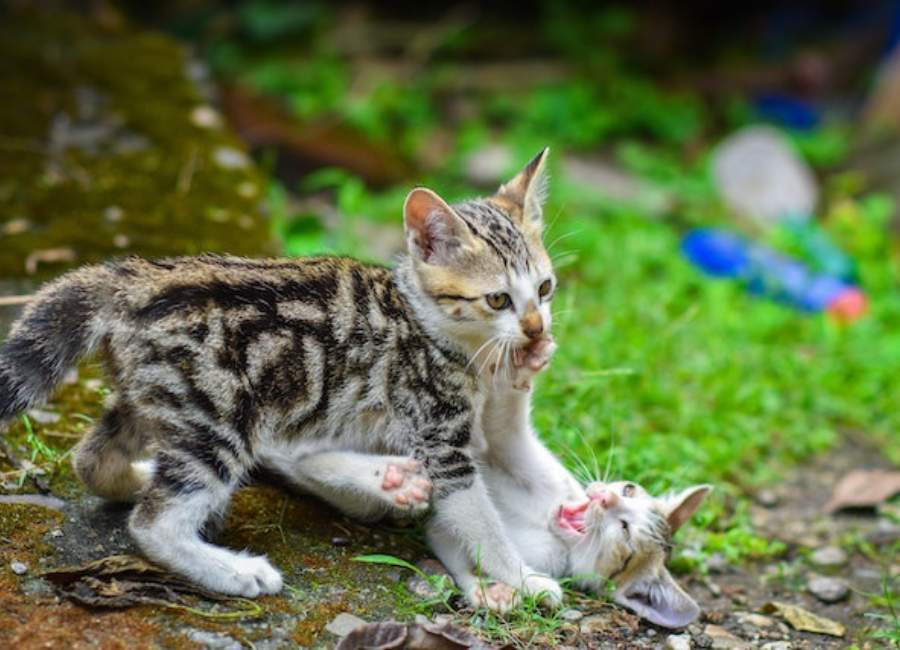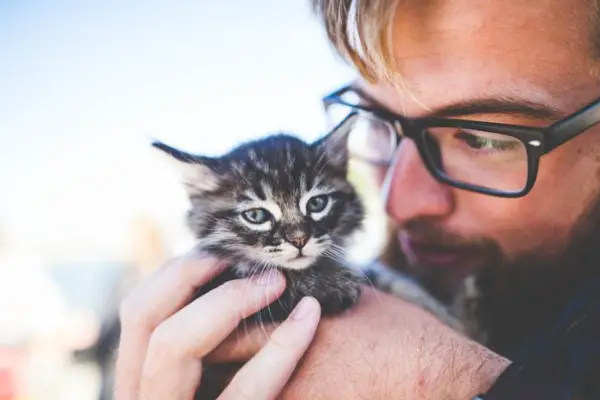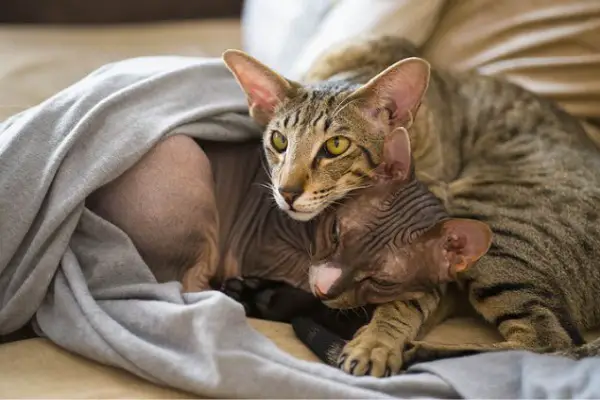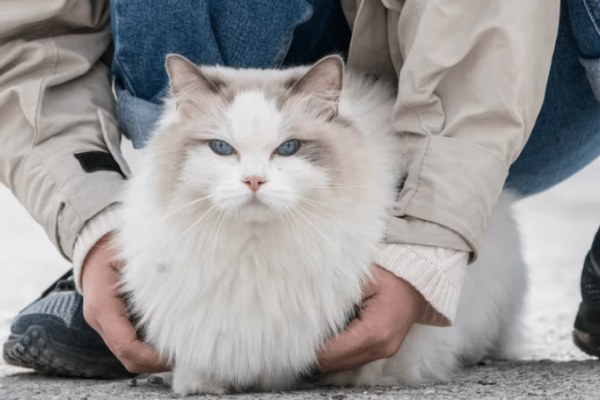10 Reasons For Cat Biting Other Cats

Have you ever seen two cats bickering with each other?
It can be quite hilarious, but if it becomes more aggressive behavior, it can become a real problem.
In this blog post, we take a look at why cats may be biting each other and how to handle the situation.
We’ll also discuss how to prevent it from happening in the future and what to do if it does.
So, if your cats are acting out, read on to learn more!
Reasons For Cat Biting Other Cats
Here are some possible reasons why cats may bite other cats:
Territorial behavior
Cats are territorial animals with a strong sense of ownership over their living space.
If a new cat moves into the territory or if they perceive their territory to be being invaded, they may become enraged and attack the other cat.
Cats who have not been neutered are more prone to exhibit this behavior because they may sense a stronger need to protect their home and possessions.
Redirected aggression
When a cat feels irritated or concerned about something, but is unable to focus their aggressiveness toward the cause of their anxiety, redirected aggression can result.
They may strike out at another cat that happens to be around in these circumstances.
Medical issues
Certain health conditions might make a cat act more aggressively than usual.
For instance, a cat who is hurt or ill may become more agitated and may snap at other cats.
Cats may become more combative due to certain medical problems, such as hyperthyroidism.
Play aggression
Cats frequently engage in play biting, especially young cats.
Cats are known for their rough play, which includes biting, clawing, and chasing.
But, if one of the cats behaves inappropriately or is too rough with other cats, this behavior may occasionally turn into actual hostility.
Fear
Fear is a common cause of aggressive behavior in cats.
An anxious cat can attempt to defend itself by biting the other cat.
This is more likely to occur when a cat has previously been attacked by another cat or when they have had a traumatic event that has made them scared.
Lack Socialization
If cats are not properly socialized as kittens, they could not know how to behave around other cats.
They might not know how to interact with other cats, which can cause miscommunication and aggressiveness.
Cats who were not exposed to other cats during their formative years may subsequently find it difficult to cope with their presence.
Inadequate resources
Competition and aggressiveness amongst the cats in a family might result from a lack of resources, such as food, water, or litter boxes.
This may be especially true if a cat starts acting aggressively against other cats because they feel that they aren’t receiving enough of a certain resource.
Age
Cats may get less tolerant of and more hostile toward other cats as they get older.
This is especially true if the senior cat feels vulnerable due to pain or movement limitations.
Intact cats
Intact male cats can be particularly aggressive towards other cats, especially if they are vying for a female cat’s attention or trying to establish dominance.
Female cats that have not been spayed may also become aggressive towards other cats during their heat cycles.
Dominance behavior
Cats naturally exhibit dominance behavior, and they may bite one another to assert dominance.
This could occur more frequently among cats who are unrelated to one another or who do not already know one another.
Learn more about reasons why cats bite.
Ways to stop cats from bite other cats
Here are some possible ways to stop cats from biting other cats:
Proper Training
Biting other cats may be avoided by teaching cats particular instructions like “leave it” or “come.”
Training your cat to follow instructions can help you stop them from acting aggressively and, when necessary, refocus their attention.
Once you notice your cat is about to bite you can give him a command like leave it, and if he does, reward him.
Positive Reinforcement
Using positive reinforcement, such as treats or praise, to reward cats for good behavior can help prevent biting.
Rewarding cats for playing nicely or not biting can reinforce positive behavior and encourage them to repeat it.
Try distractions
Using toys or incentives to divert cats’ attention away from their aggressive behavior might help them quit biting.
By giving cats engaging toys or puzzle feeders, you may keep them occupied and avoid the boredom or frustration that might result in biting.
Socialization
Early socialization helps kittens acquire the social skills and etiquette that keep them from biting other cats.
It teaches kittens how to connect with others and defines their limits by exposing them to other cats, people, and situations.
Supervising both cats
Monitoring cats’ relationships with other cats can help prevent biting before it occurs.
Conflicts may be avoided by closely observing the body language of cats and stepping in before things get out of hand.
Separate Feeding
Separate feeding stations for cats might reduce aggressiveness and biting resulting from food.
Cat dishes that divide food quantities or feeding cats in different rooms can assist to lessen competition and prevent bites.
Use calming scents
Biting and aggressive behavior can be decreased by using relaxing smells, such as pheromone sprays or diffusers.
These aromas can reduce stress-related biting in cats by making them feel more at ease and at home in their surroundings.
Medical check-ups
Biting behavior can occasionally be brought on by underlying medical issues like pain or disease.
Frequent veterinary checkups can aid in identifying any underlying medical conditions that may be causing biting.
Neutering or Spaying
Cats’ aggressive and biting tendencies can be lessened by neutering or spaying them.
Particularly during mating season, intact cats are more prone to engage in hostile behavior with other cats.
Cats’ hormone levels are decreased by neutering or spaying them, which can aid in reducing aggressive behavior.
Enrichment
By adding climbing structures, hiding places, and scratching posts to a setting, one may lessen the boredom and frustration that might result in biting.
Activities that give mental and physical stimulation and assist to excite a cat’s natural instincts can help lessen stress and aggressiveness in cats.
Desensitization
Reduce aggressive behavior and biting by desensitizing cats to their triggers, such as other cats or loud noises.
Cats can learn to manage their stresses and stop acting aggressively with the aid of positive reinforcement and gradual exposure to the trigger.
Seek Professional Help
If biting behavior persists despite efforts to stop it, seeing a veterinarian or a licensed animal behaviorist may be required.
A specialist can assist in locating the aggression’s underlying causes and in creating a special behavior modification strategy to deal with the problem.
Learn more about where cats love to be petted.
Importance of addressing cat biting behavior
To protect both humans and cats from harm, it is critical to treat cat biting behavior.
If a cat bite is left untreated, it can result in severe damage, illness, and possibly a higher chance of future violence.
Addressing the biting habit can also aid in identifying and resolving underlying medical or behavioral problems because cat bites can be an indication of these problems.
Consequently, it’s critical to deal with cat biting issues as soon as possible to safeguard everyone’s safety.
Learn more about why cats lick their owners.
Conclusion
Understanding the probable reasons for cat-fighting is essential if you want to prevent it from happening again.
If the behavior doesn’t alter, a veterinarian or behaviorist may need to be consulted.
In any case, it’s important to remember that cats biting one another is a serious issue that has to be addressed.
By giving your cats the right instruction and care, you can help to ensure that they are happy, secure, and healthy.






